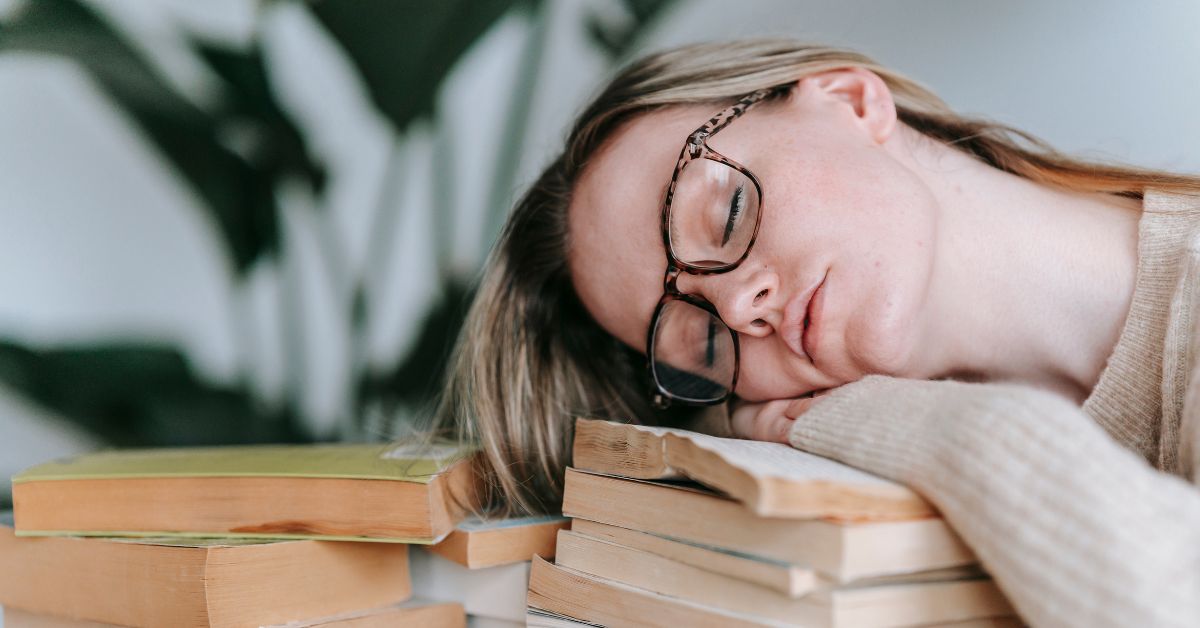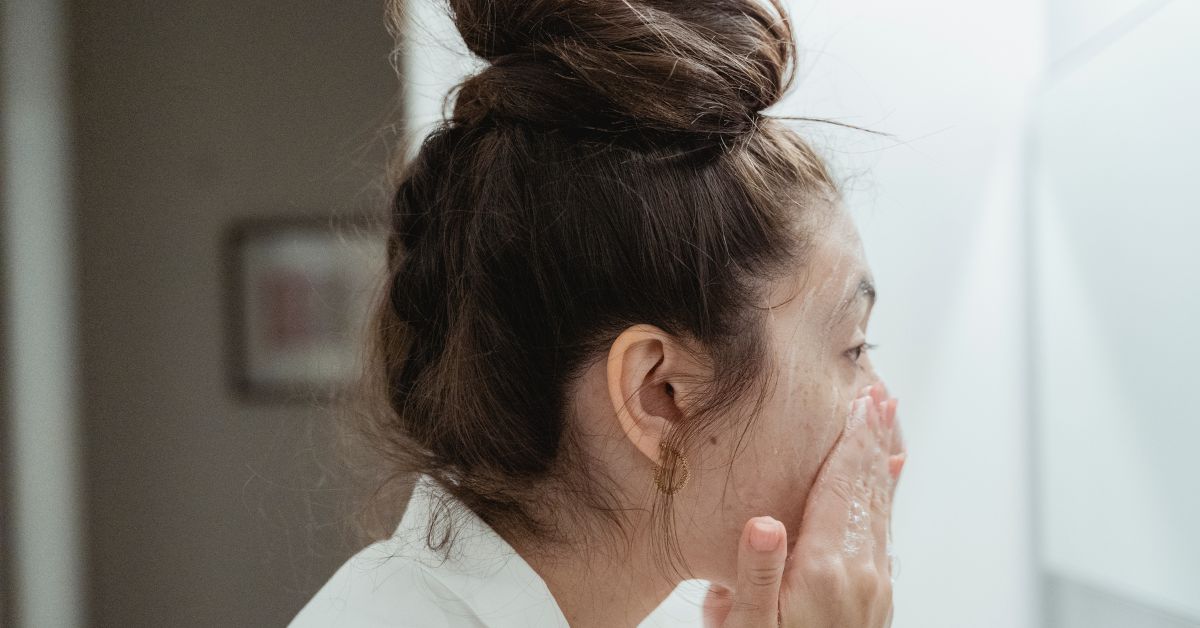Does lack of sleep cause acne? Many people notice sudden breakouts after sleepless nights, and research confirms that poor sleep can trigger acne.
Can Lack of Sleep Cause Breakouts?
Yes, it can. Poor sleep quality is associated with various skin issues, including acne vulgaris. Lack of sleep disrupts your body’s natural processes, including hormone regulation and skin repair.
When you’re sleep-deprived, your body produces more cortisol, the stress hormone. Elevated cortisol levels lead to increased oil production, clogging pores, and causing pimples. This highlights the relationship between acne and sleep disturbances, as poor sleep quality can directly impact acne severity.
Ensuring a good night’s sleep might be one step toward better skin health and managing conditions associated with acne.
How Sleep Affects Your Skin
Sleep is called “beauty sleep” for a reason. During sleep, your body enters repair mode, rejuvenating skin cells and balancing hormones. The connection between sleep and skin health is profound, impacting both skin and overall well-being.
- Cell Regeneration: While you sleep, your skin’s repair mechanisms work overtime. Lack of sleep slows this process, leaving your skin dull and prone to breakouts. Ensuring enough sleep supports effective cell regeneration.
- Hormonal Balance: Sleep helps regulate hormones responsible for oil production. Poor sleep can cause an imbalance, leading to excess oil and acne.
- Inflammation Reduction: Proper rest reduces inflammation in the body. Sleep deprivation can increase inflammatory markers, worsening skin issues.
- Hydration Maintenance: Sleep helps your skin retain moisture. Dehydrated skin due to poor sleep can make acne worse.
Why Does Lack of Sleep Cause Acne?
Lack of sleep triggers several processes that contribute to acne. High cortisol levels stimulate sebaceous glands, increasing oil production and clogging pores.
Sleep-deprived skin has a weakened barrier function, making it more susceptible to irritants. Oxidative stress caused by poor sleep damages skin cells and worsens acne. The National Sleep Foundation emphasizes the importance of enough sleep for overall health, including skin health.
Additionally, poor sleep can affect your gut microbiome, which plays a role in skin and overall health. An imbalanced gut can contribute to inflammation and acne, highlighting the connection between sleep and acne. Studies show that acne severity and sleep quality are closely linked, making skin care routines more effective when paired with adequate rest.
How Many Hours Should I Sleep to Prevent Acne?
Aim for 7-9 hours of quality sleep each night to maintain healthy skin. This range allows your body to complete its essential repair processes and hormonal cycles.
Creating a consistent sleep schedule can further enhance these benefits. Going to bed and waking up at the same time daily helps regulate your internal clock.
If you struggle to fall asleep, consider incorporating relaxing activities like reading, meditating, or taking a warm bath before bedtime. Avoid caffeine and heavy meals in the evening to promote restful sleep.
Other Factors Affecting Acne
While sleep is significant, other factors also impact skin health and contribute to acne. Here are some common contributors:
- Dietary Choices: High-glycemic foods and dairy products can trigger breakouts by affecting insulin levels and hormonal activity. A balanced diet rich in fruits, vegetables, and whole grains may help reduce acne.
- Stress Levels: Chronic stress increases cortisol levels, leading to inflammation and heightened oil production. Stress management techniques like meditation or exercise can help alleviate these effects.
- Environmental Factors: Pollution and humidity can clog pores and promote bacterial growth. Consistent cleansing and using antioxidant-rich skincare products can protect your skin.
- Lifestyle Habits: Smoking depletes oxygen and nutrients in your skin, accelerating skin aging and worsening acne. Staying hydrated and avoiding harsh chemicals in household products can further support skin health.
- Skincare Routines: Using the wrong skincare products or skipping a proper routine can contribute to breakouts. Opt for non-comedogenic products and a consistent cleansing routine to minimize risk.
Since your skin is the largest organ, prioritizing healthy habits like making sleep a priority can greatly improve skin conditions and prevent severe acne.
Other Skin Problems Caused by Lack of Sleep
Lack of sleep doesn’t just cause acne; it can lead to other skin issues as well. Here are some additional problems to watch out for:
- Dull and Dry Skin: Sleep deprivation reduces skin’s moisture retention, leaving it dull and dehydrated.
- Dark Circles and Puffiness: Inadequate rest can cause blood vessels under the eyes to dilate, creating dark circles and puffiness.
- Premature Aging: Poor sleep increases cortisol levels, which break down collagen and elastin, leading to wrinkles and sagging skin.
- Slower Wound Healing: Lack of sleep hampers the skin’s ability to repair itself, delaying the healing of cuts, blemishes, or irritations.
- Increased Sensitivity: Sleep-deprived skin is more prone to irritation, redness, and allergic reactions due to a weakened poor skin barrier.
By prioritizing quality sleep and maintaining a regular sleep schedule, you can help prevent these skin problems and maintain a healthy complexion.
Tips for Treating and Preventing Acne
If you’re struggling with a specific type of acne, these practical tips can help. Prioritize sleep hygiene by creating a relaxing bedtime routine.
- Practice Good Sleep Hygiene: Use blackout curtains, keep your bedroom cool, and invest in a comfortable mattress. Establishing a pre-sleep routine, like listening to calming music, can also help improve sleep quality in adults.
- Optimize Your Skincare Routine: Use a gentle cleanser, exfoliate weekly, and apply skin care products with salicylic acid or benzoyl peroxide. Always remove makeup before sleeping.
- Stay Hydrated: Drink at least 8 glasses of water daily. Hydration helps flush toxins from your system and keeps your skin supple.
- Eat a Skin-Friendly Diet: Incorporate foods like fatty fish, spinach, and nuts rich in omega-3s and antioxidants. Avoid sugary and processed foods that can lead to more breakouts.
- Exercise Regularly: Physical activity boosts blood circulation and reduces stress, which benefits your skin. Just remember to cleanse your face after sweating.
- Manage Stress: Practice mindfulness, yoga, or journaling to manage stress levels. High stress can trigger hormonal imbalances and exacerbate acne, leading to worse acne.
- Avoid Touching Your Face: Frequent touching transfers bacteria and oil to your skin, increasing the risk of acne.
- Change Pillowcases Frequently: Dirty pillowcases can harbor oil and bacteria that contribute to breakouts. Wash them weekly.
- Use Sunscreen Daily: Protect your skin from UV rays, which can worsen acne scars and hyperpigmentation.
- Consider Professional Help: If acne persists, consult a dermatologist. They can recommend acne treatments like retinoids, chemical peels, or prescription medications.
Additionally, consider how your sleep environment and amount of sleep can affect the skin. Poor sleep and fatigue have significant effects on your skin, contributing to acne and fatigue, which may result in a vicious cycle of breakouts.
FAQs
Does Sleeping Early Get Rid of Pimples?
Sleeping early helps your skin repair and regenerate. Over time, a consistent sleep schedule can lead to clearer skin.
Can Lack of Sleep Cause Acne on Forehead?
Yes, it can. The forehead is prone to breakouts due to oil production and stress-related hormonal changes.
Can Exercising Reduce Acne?
Exercise improves blood circulation, delivering nutrients to your skin. Sweating during exercise can unclog pores, but cleanse your face afterward.
What Are the Three Causes of Acne?
Excess oil production, clogged hair follicles, and bacteria cause acne. Inflammation also plays a significant role.
What Does Stress Acne Look Like?
Stress acne appears as red, inflamed bumps on the forehead, chin, or jawline. It often includes whiteheads, blackheads, or cystic acne.
What Is the Most Common Cause of Acne?
Hormonal changes are the most common cause, especially during puberty, menstrual cycles, or stress. Genetics and lifestyle also play roles.
Takeaway
Sleep deprivation disrupts natural processes, leading to hormonal imbalances and delayed skin repair.
By prioritizing sleep and healthy skincare habits, you can reduce acne. Small changes in your routine, like improving your diet, managing stress, and practicing good skincare, can lead to big improvements in your skin health.
So, does lack of sleep cause acne? Yes, sleep deprivation disrupts hormonal balance and skin repair, leading to breakouts. Prioritizing quality sleep can improve skin health.
Recent Post

The Best Loose Leaf Teas for Energy, Sleep, and Stress Relief
Elixir RX

Does Vitamin C Help Acne? Benefits, Tips, and How to Use
Elixir RX

10 Health Benefits of Loose Leaf Tea You Need to Know
Elixir RX


